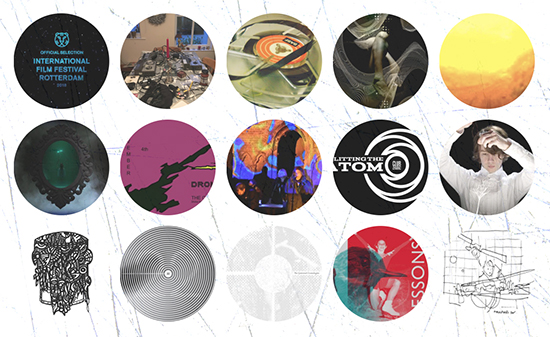The Alchemical Landscape is an ongoing research and public engagement project that is currently being hosted as one of eleven interdisciplinary CRASSH Research Groups running fortnightly seminars in the academic year 2017-18. Yvonne Salmon, Director of the project, here introduces some of the ideas behind the group. Would you like to attend? Click here to view their programme of events.
Q. Yvonne, The Alchemical Landscape is an intriguing title for a research group. What does it refer to?
The group considers the increasing tendency on the part of contemporary artists, writers and film-makers to offer ‘magical’ or otherwise ‘enchanted’ representations of landscape. From Jez Butterworth’s play Jerusalem (2009) to the ongoing site-specific investigations of musicians such as English Heretic, there is something of a ‘geographic turn’ at play in recent art practice. Why this so often draws upon language and imagery pertaining to the occult or esoteric is one of the key research questions we are investigating. What we attempt to do via The Alchemical Landscape is to offer something of a ‘field guide’ to this uncanny territory.
I developed the group out of a symposium we held on Ben Wheatley’s film A Field in England (2013) in 2013. We had a launch event at the University of Cambridge in March 2015 that brought together a lot of the artists we had been working on up until that point. In 2016, we held a second symposium at Girton College looking at notions of landscape and the occult via film and screen media. In addition to our current seminar series at CRASSH, The Alchemical Landscape also serves as an umbrella for creative work. I’m active as an artist and frequently collaborate with my co-ordinator on this project, James Riley. We’ve done a number of performances connected to The Alchemical Landscape and have most recently developed a multi-platform piece called Headlands based on the folklore and landscape of North Cornwall.
Q. This group brings into collaboration the Faculty of English and the Department of Land Economy. How challenging has it been to develop what one might call a shared language between the two disciplines?
We were actively looking to explore a shared conceptual and theoretical language relevant to the works studied. A lot of the projects under discussion by the group thus far such as Tales from the Black Meadow are creative works deeply embedded in specific landscapes, in this case RAF Fylingdales on the North York Moors. The project is made manifest in texts, recordings, and performance but, like English Heretic’s ‘The Sacred Geography of British Cinema’, they are in-situ compositions. As such, their interpretation requires one to engage not just with the media involved but also the sense of place they evoke. By extension, these works carry further significance in relation to such questions of landscape ownership, art and the environment, rural transformation and the politics of space. Literary criticism alone is not enough to fully interpret the likes of Patrick Keiller’s multi-platform project Robinson in Ruins (2010). But, by the same token, his speculative approach to matters of geography, land rights, law, and environmental ethics requires one to see the issues through a lens sensitive to the productive ambiguity of creative art. Bringing Land Economy and English literature together in a discursive space allowed us to freely experiment with each other’s theoretical tools and to discover frequent points of overlap. In this context then, the reference to alchemy in our project title works as something of a methodological metaphor: we’re interested in the solve et coagula that occurs between these disciplines when we bring the fields together. In terms of central questions, when we look at the range of material dealing with matters of landscape with an ostensibly magical register, we ask why this language and why now?
Q. Could you tell us a bit more about your speakers and attendees and the perspectives they bring to the discussion?
Our sessions attract very good, very engaged participants. All the speakers we’ve hosted thus far have commented on the quality of the questions asked and have reflected on how useful they have found the seminar discussions. We’ve built up a network of attendees drawn from across the humanities and the social sciences: undergraduates, postgraduates, researchers and faculty members. We also have a healthy contingent of local artists who attend our sessions and we’re particularly pleased to have built links to such networks as Cambridge’s wonderful bad timing. This cross-section of interests and expertise is also reflected in the speakers. We’ve hosted academics, writers, artists, local historians film-makers and musicians. One of last term’s highlights was an event featuring the musician Robin the Fog, one half of the tape-duo Howlround. Robin the Fog uses analogue tape to create elongated, spectral soundscapes. His talk was a brilliant demonstration of his theory and practice which resulted in him making a special recording during the session. It has been very rewarding to have this mix of practice-based sessions interspersed with more interpretative takes on the material.

howlround.co.uk
Q. What can we expect from The Alchemical Landscape in 2018?
The 2017-2018 seminar programme develops the themes and ideas raised in ‘Property, Properties and Haunted Houses’, the symposium that closed our 2016-2017 sequence. In this event we brought together specialists from English, Land Economy and Geography to talk about the rise of ghostly or otherwise neo-gothic language when describing housing, accommodation and value: ‘ghost towns’ and so-called ‘zombie properties’. In curating this sequence we’ve tried to build on this discussion of spectral economies by thinking in more detail about the hidden or occulted aspects of landscape. Planned events will take these themes further through the examination of a variety of media and we’ll be hearing about polyphonic cinema; supernatural cities; topographia and topothesia; crystallised time.
• If you’d like to join our mailing list please contact us at: thealchemicallandscape@gmail.com

